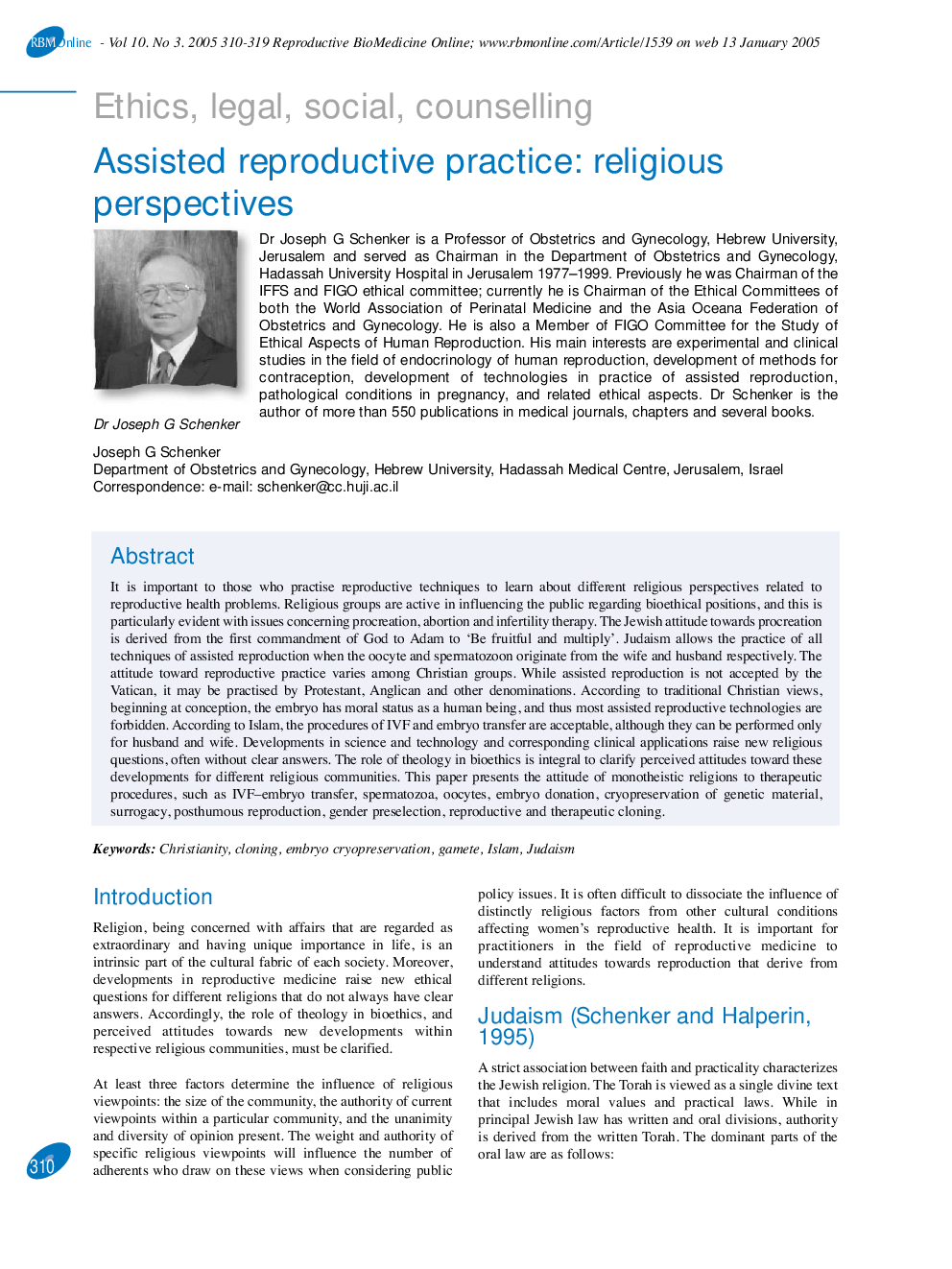| Article ID | Journal | Published Year | Pages | File Type |
|---|---|---|---|---|
| 9335366 | Reproductive BioMedicine Online | 2005 | 10 Pages |
Abstract
It is important to those who practise reproductive techniques to learn about different religious perspectives related to reproductive health problems. Religious groups are active in influencing the public regarding bioethical positions, and this is particularly evident with issues concerning procreation, abortion and infertility therapy. The Jewish attitude towards procreation is derived from the first commandment of God to Adam to 'Be fruitful and multiply'. Judaism allows the practice of all techniques of assisted reproduction when the oocyte and spermatozoon originate from the wife and husband respectively. The attitude toward reproductive practice varies among Christian groups. While assisted reproduction is not accepted by the Vatican, it may be practised by Protestant, Anglican and other denominations. According to traditional Christian views, beginning at conception, the embryo has moral status as a human being, and thus most assisted reproductive technologies are forbidden. According to Islam, the procedures of IVF and embryo transfer are acceptable, although they can be performed only for husband and wife. Developments in science and technology and corresponding clinical applications raise new religious questions, often without clear answers. The role of theology in bioethics is integral to clarify perceived attitudes toward these developments for different religious communities. This paper presents the attitude of monotheistic religions to therapeutic procedures, such as IVF-embryo transfer, spermatozoa, oocytes, embryo donation, cryopreservation of genetic material, surrogacy, posthumous reproduction, gender preselection, reproductive and therapeutic cloning.
Related Topics
Health Sciences
Medicine and Dentistry
Obstetrics, Gynecology and Women's Health
Authors
Joseph G Schenker,
